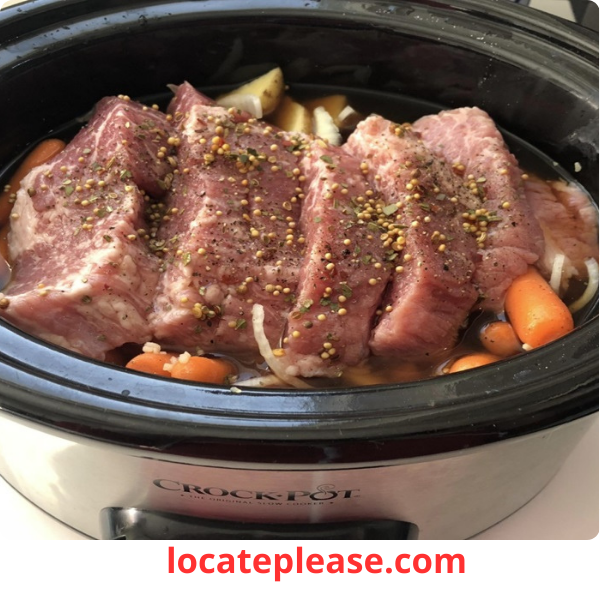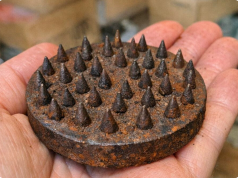Slow cookers are a lifesaver for busy cooks, offering convenience and hands-off cooking that results in tender, flavorful meals. However, not all ingredients are suited for the low, steady heat of a crockpot. Some foods can turn out ruined, unappetizing, or even dangerous when cooked this way. Here’s a guide to 11 foods you should avoid putting in your slow cooker, along with tips on how to adapt recipes to make them slow-cooker-friendly.
1. Dairy Products
Dairy products like milk, cream, and cheese are notorious for curdling under prolonged heat. Imagine expecting a creamy soup but ending up with watery, separated liquid instead. This happens because proteins in dairy break down over time in the slow cooker.
- What Happens: Cream separates, cheese becomes grainy, and milk curdles into an unpleasant texture.
- Solution: Add dairy products during the last 30 minutes of cooking. Opt for processed cheeses (like Velveeta) if you need cheese to melt smoothly without separating.
2. Seafood
Seafood, including shrimp, fish, and scallops, is delicate and prone to overcooking in a slow cooker. Unlike tougher cuts of meat, seafood doesn’t benefit from hours of simmering—it becomes rubbery and loses its appeal.
- What Happens: Shrimp shrivels up, fish flakes apart excessively, and scallops lose their tender bite.
- Solution: Add seafood only during the final hour of cooking. For dishes like chowders or stews, wait until the very end to incorporate these ingredients.
3. Fresh Herbs
Fresh herbs like parsley, basil, and cilantro are vibrant additions to any dish, but they don’t fare well in a slow cooker. Their delicate flavors dissipate or turn bitter after hours of exposure to low heat.
- What Happens: Herbs lose their bright, fresh taste and develop a harsh, off-putting bitterness.
- Solution: Use dried herbs instead, which are designed to withstand long cooking times. Save fresh herbs as garnishes added just before serving.
4. Alcohol
Adding wine, beer, or spirits directly to a slow cooker can result in an overpowering alcoholic flavor. Unlike cooking on the stovetop, where alcohol evaporates quickly, the slow cooker traps it, leaving behind an unpleasant taste.
- What Happens: The dish retains too much raw alcohol flavor, which can overpower other ingredients.
- Solution: Cook alcohol separately on the stovetop first to reduce and concentrate its flavor, then add it to the slow cooker later in the process.
5. Lean Meats (Without Moisture)
While slow cookers excel at tenderizing tough cuts of meat, lean meats like chicken breasts or pork loin can dry out easily. Without enough moisture or fat, these proteins become stringy and bland.
- What Happens: Lean meats lose their juiciness and texture, resulting in a disappointing meal.
- Solution: Choose fattier cuts like thighs, chuck roast, or shoulder. Alternatively, add extra broth or marinade to keep lean meats moist.
6. Pasta
Cooking pasta in a slow cooker often leads to mushy, overcooked noodles. Since pasta requires less time to cook than most slow-cooker recipes, it absorbs excess liquid and breaks down.
- What Happens: Pasta turns into a soggy mess, ruining the consistency of soups or casseroles.
- Solution: Cook pasta separately and stir it into the dish just before serving. If using lasagna noodles, look for no-boil varieties that hold up better.
7. Rice
Similar to pasta, rice tends to absorb too much liquid and overcook in a slow cooker. White rice especially can become sticky and overly soft, while brown rice may remain undercooked due to uneven heating.
- What Happens: Rice either gets mushy or stays crunchy despite extended cooking times.
- Solution: Cook rice separately and combine it with the rest of the dish afterward. Instant rice works better in slow cookers but still requires careful timing.
8. Raw Beans
Dry beans, particularly kidney beans, require soaking and boiling before being safe to eat. Cooking them directly in a slow cooker poses a health risk because the low temperature fails to eliminate toxins naturally present in certain types of beans.
- What Happens: Undercooked beans can cause food poisoning due to lectins, which are toxic compounds found in raw or improperly cooked beans.
- Solution: Always soak and boil beans on the stovetop before adding them to the slow cooker. Canned beans are a safer alternative since they’re pre-cooked.
9. Delicate Vegetables
Vegetables like spinach, zucchini, and mushrooms release a lot of water and can become mushy or disintegrate in a slow cooker. Their texture suffers significantly after hours of simmering.
- What Happens: Spinach wilts into nothingness, zucchini turns watery, and mushrooms lose their structure entirely.
- Solution: Add delicate vegetables during the last 30–60 minutes of cooking to preserve their integrity.
10. Whole Eggs
Whole eggs cooked directly in a slow cooker often end up rubbery or unevenly cooked. Scrambled eggs or boiled eggs lack the precision needed for proper texture in a slow-cooking environment.
- What Happens: Eggs become tough, dry, or oddly textured.
- Solution: Crack eggs into individual wells near the end of cooking (e.g., for shakshuka). Alternatively, poach or scramble eggs separately and mix them in afterward.
11. Frozen Meat
Placing frozen meat directly into a slow cooker increases the risk of bacterial growth. Slow cookers take time to reach safe temperatures, giving bacteria ample opportunity to multiply.
- What Happens: Food safety concerns arise, potentially leading to illness.
- Solution: Thaw meat completely in the refrigerator before adding it to the slow cooker. Pat it dry to ensure even browning and better flavor absorption.
While slow cookers are incredibly versatile, understanding their limitations is key to achieving delicious results. By avoiding these 11 problematic foods—or adapting them properly—you’ll save yourself from culinary disasters and enjoy perfectly cooked meals every time. Whether it’s holding off on adding dairy, keeping seafood for the last hour, or skipping frozen meat altogether, small adjustments can make a world of difference. Happy slow cooking!






